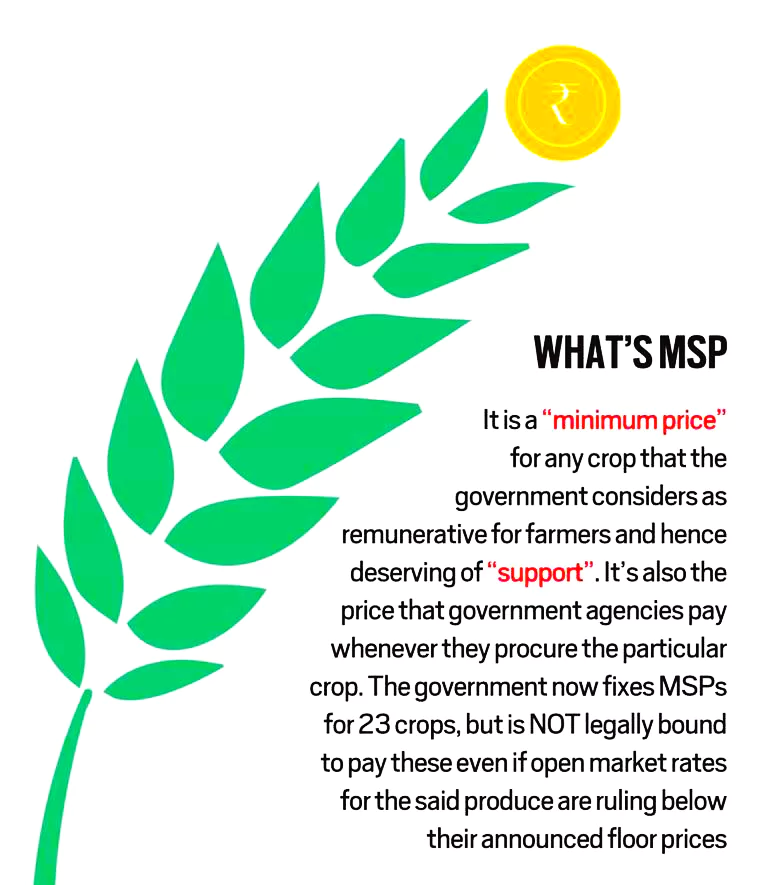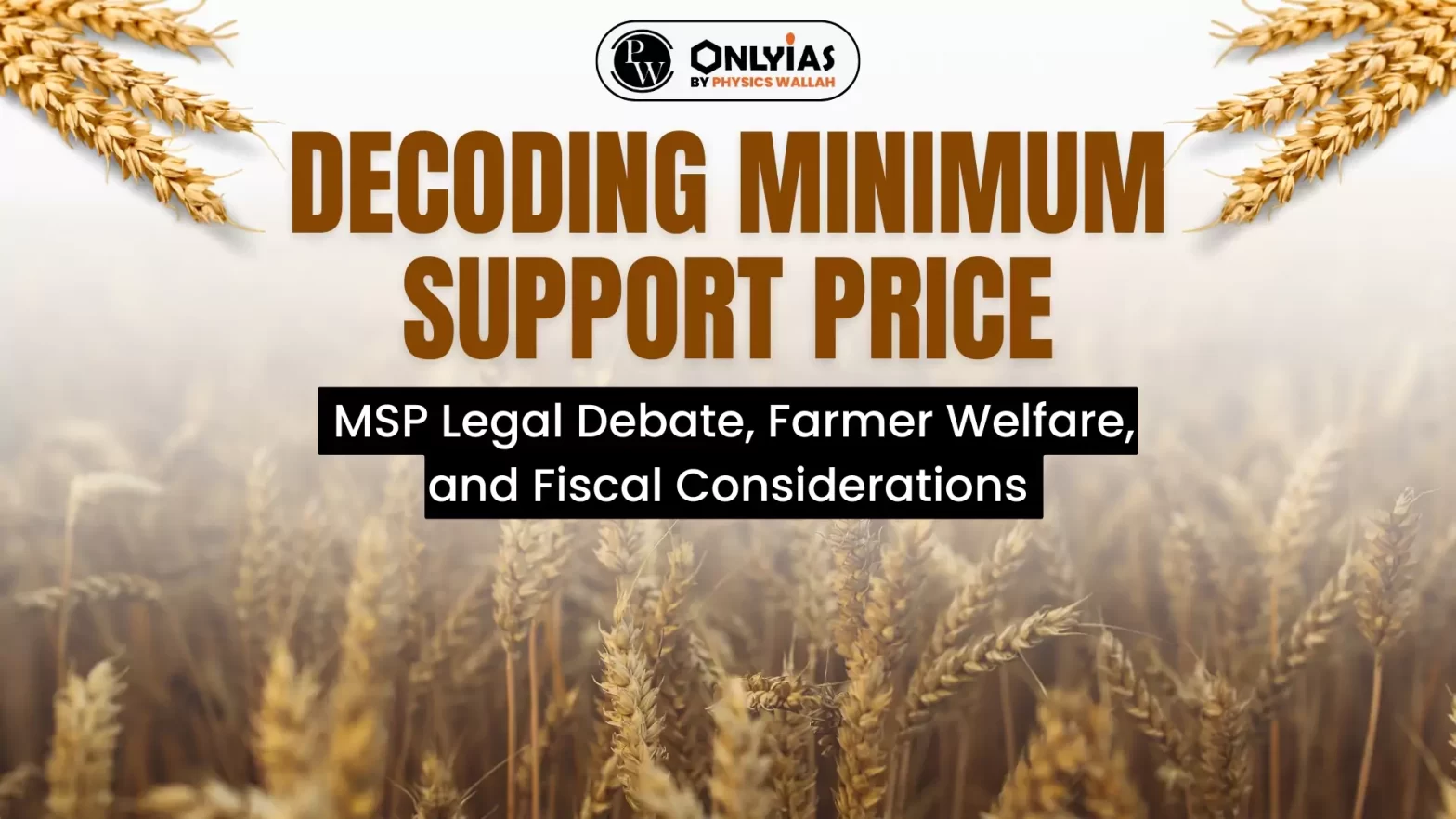Context:
This editorial is based on the news “Should Minimum Support Price be legalised?” which was published in The Hindu. Recently, groups of farmers began a march to New Delhi, to press for fulfillment of their demands, which include a legal guarantee for purchasing crops at Minimum Support Price (MSP).
| Relevancy for Prelims: About Minimum Support Price (MSP).
Relevancy for Mains: About MSP, Arguments in Favour and Against Legalizing MSP and Way Forward. |
About Minimum Support Price (MSP):

- A Government Guarantee: MSP is a government-guaranteed price for agricultural produce.
- Announcement: It is announced by the Government at the beginning of the sowing season for certain crops, on the basis of the recommendations of the Commission for Agricultural Costs and Prices (CACP).
- To Protect Farmers: It serves as a market intervention to protect farmers from sharp changes in crop prices.
- Coverage: It covers 22 mandated crops and Fair and Remunerative Prices (FRP) for sugarcane.
Arguments in Favour of Legal MSP:
- Support for Farmers: Legal MSP would provide a legal guarantee for farmers, ensuring them a minimum price for their crops. This can help stabilize their income and reduce uncertainty.
- National Interest: It aligns with the national Interest by formalising and digitising commodity transactions, which is in line with the government’s aim to modernise agriculture.
- Price Stabilisation: Even marginal government procurement (5-10% of the produce) under MSP could stabilise prices, benefiting both farmers and consumers.
- Addressing Agricultural Crisis: With the agricultural sector facing distress post-1991 reforms, Legal MSP could be a step towards revitalising the sector and ensuring farmers’ livelihoods.
- Reducing Inflation: By ensuring farmers get reasonable income for their produce, MSP legalisation could potentially reduce food inflation, benefiting consumers.
- Encouraging Diversification: A legal MSP could nudge farmers towards diversifying beyond traditional crops like paddy and wheat, which could enhance incomes and nutrition security.
Arguments against Legal MSP:
- Implementation Challenges: With a significant portion of crop sales happening outside the mandi system, implementing a legal MSP across all crops would be difficult, especially without comprehensive records of transactions.
- Government Procurement Limitations: The government may face difficulties in procuring all 23 crops under MSP, given existing challenges in wheat and rice procurement.
- State Policy Variation: Agricultural policies and conditions vary significantly across states. A one- size-fits-all approach may not be effective, suggesting a need for state-specific policies.
- Consumer Prices: Legal MSP could lead to higher prices for consumers, as the cost of ensuring MSP for farmers might get transferred to market prices.
- Influence of Vested Interests: Both cooperatives and Farmer Producer Organizations (FPOs), which could play a role in supporting MSP Implementation, have historically been susceptible to capture by influential local interests.
- Burden on Government Resources: Extensive procurement under MSP could strain government resources, requiring careful consideration of fiscal implications.
Conclusion:
Legal MSP will reduce inflation, protect consumers, and give a relatively reasonable income to the farmers. However, it will increase the financial burden on the Government. Hence, a balanced approach needs to be adopted like enforcing the Swaminathan Committee Recommendation to increase the MSP (should at least be 50% more than the weighted average cost of Production, which it refers to as the C2 cost).
![]() 1 Mar 2024
1 Mar 2024

